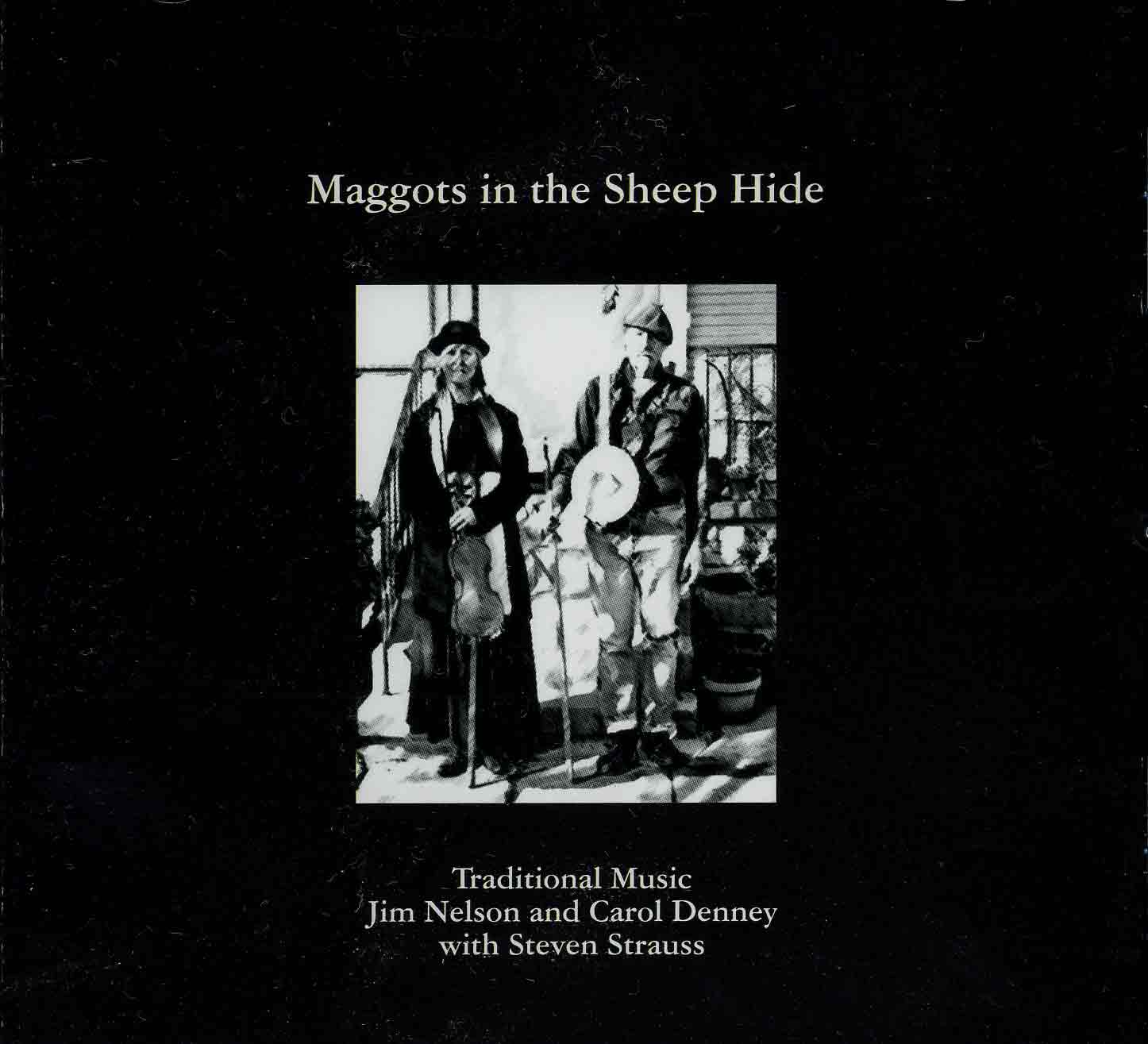About forty-five miles east of Pittsburgh, in southwest Pennsylvania, lies the borough of Derry. Nestled in the foothills of the Laurel Highlands, part of the Appalachian Mountain chain, at the base of Chestnut Ridge, the town has a population today of about 2,700, probably near the same population it had in 1943, when musicologist Samuel Preston Bayard came through the area on a collecting trip, seeking out the fiddle music he remembered hearing as a child visiting relatives. One of the first musicians he came across was Sarah Armstrong, an elderly woman of Scottish descent, whose father and uncles had all been local musicians of some repute. It was primarily from them that she had gotten her repertoire of tunes. Bayard transcribed a total of thirty-seven tunes from Sarah Armstrong, making her the largest contributor to the collection he published the following year, entitled Hill Country Tunes, the Instrumental Folk Music of Southwestern Pennsylvania. One of those tunes is this week's BHO Tune of the Week, a melodically simple but engaging tune called Maggots in the Sheep Hide.

Sarah Armstrong
Bayard states that "a notable feature of this dance air is its short three-note prelude, which is never played except at the very start, and is left out of all subsequent repetitions." Otherwise, he doesn't have anything else to say about it, and I am not sure those who play it today pay much attention to that little prelude, a variation on the standard fiddler's "potatoes." I first heard this tune a few years ago when Linda Henry and Jerry Dallal played it at the weekly Sunday night old time music jam at the Skellig, in Waltham, Massachusetts. Linda and Jerry do some of the finest old-time duet singing I have ever heard. My recording, attached below, comes from the Clifftop jam I had this past August with Don Couchie and Tim Rowell. Don is playing the fiddle, Tim is doing that neat low, growly clawhammer picking, and I am doing the three finger picking. I recorded this on my little hand held Tascam DR-1. I have a tablature of my arrangement posted on my website. Another friend of mine calls the tune "charming."


Don Couchie & Tim Rowell
I guess this is still a pretty rare tune, because I couldn't find too many commercially available recorded references. There are two of note: Pennsylvania fiddler Todd Clewell put out a CD in 2005 on his own label, Happy Dog Records, with twenty-six of the Armstrong tunes, called, appropriately, Sarah Armstrong's Tunes. Maggots in the Sheep Hide is the first tune on the CD. I've heard Todd fiddle at Clifftop, and he is a wonderful player.
On his website, Todd also offered a Sarah Armstrong t-shirt; I wonder what Armstrong would have thought of that ("oh, good Lord," probably, but said very nicely). I tried to order one, but the link was dead. ![]()
Bay Area songwriter and fiddler Carol Denney released a self-produced CD in 2009 called Maggots in the Sheep Hide, with banjo picker Jim Nelson. Here is the sample from CD Baby:
Carol Denney playing Maggots in the Sheep Hide (sample)
left click
I could only find one version of Maggots in the BHO Music Archive, from former Tune of the Week coordinator and noted blogger John "J-Walk" Walkenbach, doing a fine clawhammer version. He appears again in the Fiddle Hangout archive, in a duet with FHO member wormbower:
J-Walk picking Maggots in the Sheep Hide
Wormbower fiddling Maggots in the Sheep Hide
I would strongly recommend reading Bayard's introduction to Hill Country Tunes; it has a good discussion of much traditional fiddling practice common in Appalachia, including the use of drones, variation in how the fiddle is held, non-standard cross tunings, the use of non-chromatic quarter tones, and even "trick" fiddling. Right click on the image to rotate the PDF clockwise. A pair of typical Bayard observations:
When a fiddler knows in what key he is playing, it is no sign that he knows anything about reading music; and when he is able (as few are) to read notes, the effect of printed music on his repertoire and playing habits is still likely to be slight, if he has been an ear player at first.
A common practice among country fiddlers is to use the open strings as drones. Often they shave down the top of the violin bridge until the strings are nearly on the same plane, making continuous double-stop playing easier; and performing in this manner they call "cross-bowing" or "plauing the old way." This feature, combined with the steady rhythm and absence of dynamc change in their playing, produces an effect much like that of bagpipes, of which it may possibly have been an imitation.
Bayard regretted not being able to record his tune sources himself, writing that "circumstances did not permit the use of machinery." He does report that Sarah Armstrong was recorded by her family, using a home disc recorder, but so far those recordings have not surfaced, so all we have are Bayard's transcriptions. I wonder if anyone has made a serious effort to track them down.
I'm sure hoping to hear some fine versions coming from you old time pickers! And if you are quizzical about the odd title, apparently infestation of living sheep by blowfly (lucilia cuprina) maggots is a common agricultural problem. The disease is called fly strike, and if not immediately treated can cause the animal an agonizing death. Doesn't seem to fit with the happy tune, but go figure.
